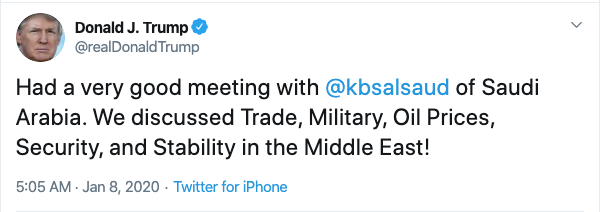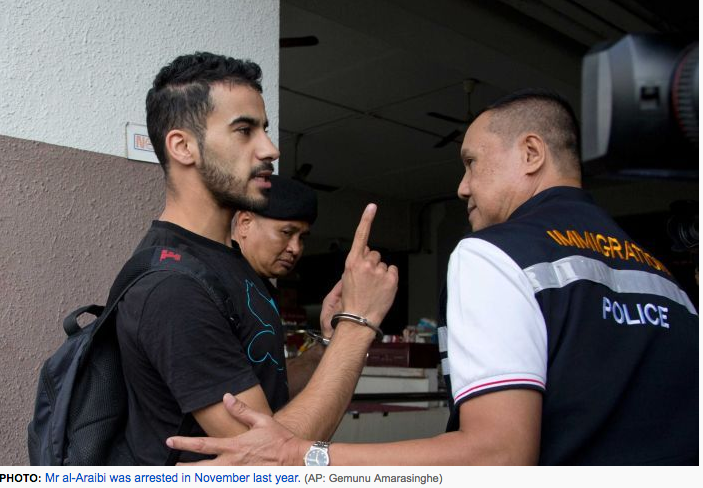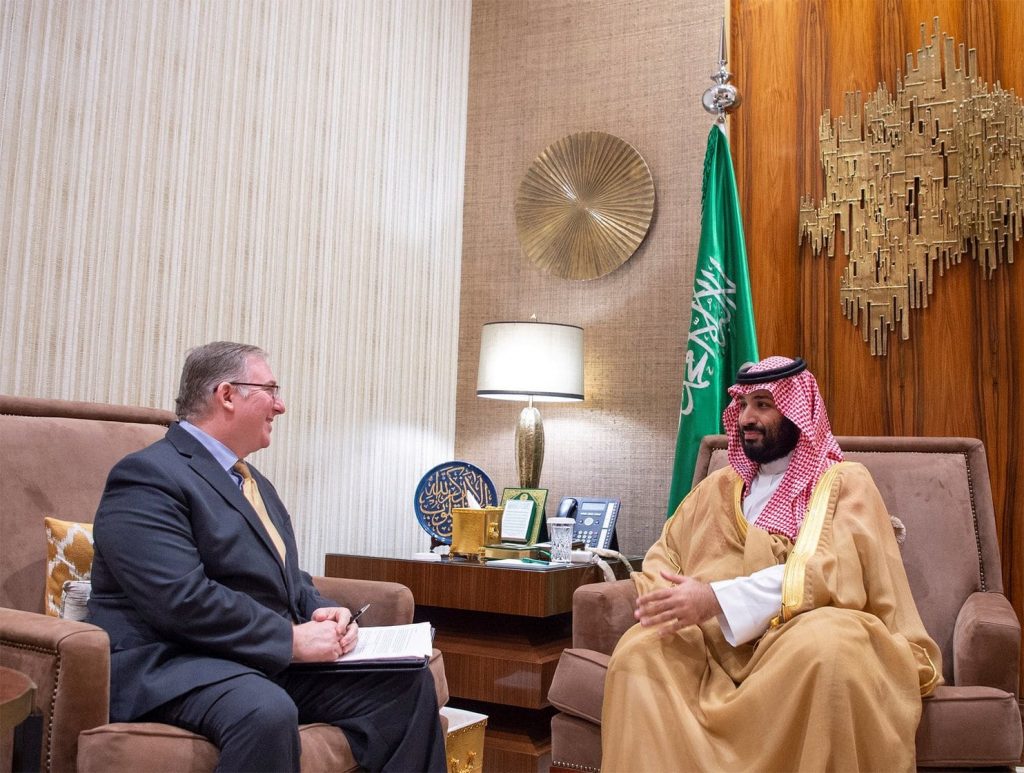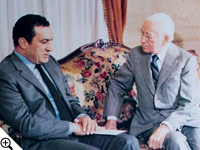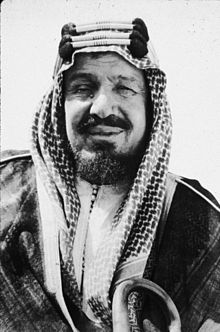It sure looked like Trump was going all out to provoke a war with Iran — or maybe he was too stupid to think through the consequences of assassinating Qassem Soleimani [link is to Vridar post on QS’s bio] that far in advance. Then came this tweet:
And that tweet seems to have been forced out of him only after the Saudi’s themselves announced the meeting: see White House Press Association Rebukes Trump Administration for Secret Saudi Meeting in Oval Office.
The Saudis are having a hard enough time with the Iranian backed Houthis in Yemen and they recently saw how vulnerable their oil depots were to drone strikes. Anyway, Trump suddenly started talking of de-escalation and allowed the Iranians to respond so long as they gave warning so that no lives would be lost.
U.S. and Israeli hawks have long been itching for war with Iran, and that war would have been a perfect deflection from the impeachment mess. One can’t help but wonder what was discussed at that meeting with Trump and the Saudis.
Or am I just being alt-conspiratorial?
One thing is for sure, though. Obama managed with international support to “guarantee” Iran’s security if they gave up on a nuclear weapons program. I somehow find it inconceivable that Iran won’t have a nuclear weapon relatively soon. Trump’s action seems to have made that almost inevitable — so it seems when I read Dana Kennedy’s article in DCReport.org: The Suleimani Assassination May Set Back U.S. Intelligence Gathering: Striking the General Revealed NSA Capability to Spy on Top Iranians and Their Nuclear Weapons Program. After all, Trump does have a history of letting little secrets slip. Terrorists have learned not to use cell phones when they communicate; no doubt (given Dana Kennedy’s article) Iranians have now learned a similar lesson with respect to a (surely revamped) nuclear weapons program.
Iranian leadership would surely be even more madly insane than Trump if they don’t go all out to get a nuclear weapon now. How else could they “guarantee” their security from invasion or “shock and awe” bombing?
Meanwhile, the U.S. troops who continue to occupy the country they “liberated” have been obliged to turn away from their stated goal of “mopping up the remnants” of ISIS and standing guard against Iranian proxy attacks.
A nuclear-armed Iran (may not be such a bad thing for the immediate future), a resurgent ISIS — even a restored caliphate?, an inevitable eventual withdrawal of the U.S. from Afghanistan and Iraq — unless, perhaps, the Saudis change their minds and offer to flatter Trump if he changes his mind once more on Iran.
But I’m only musing. I have no idea. A mere citizen who tries to keep on top of the news and what’s happening, or seems to be happening.

